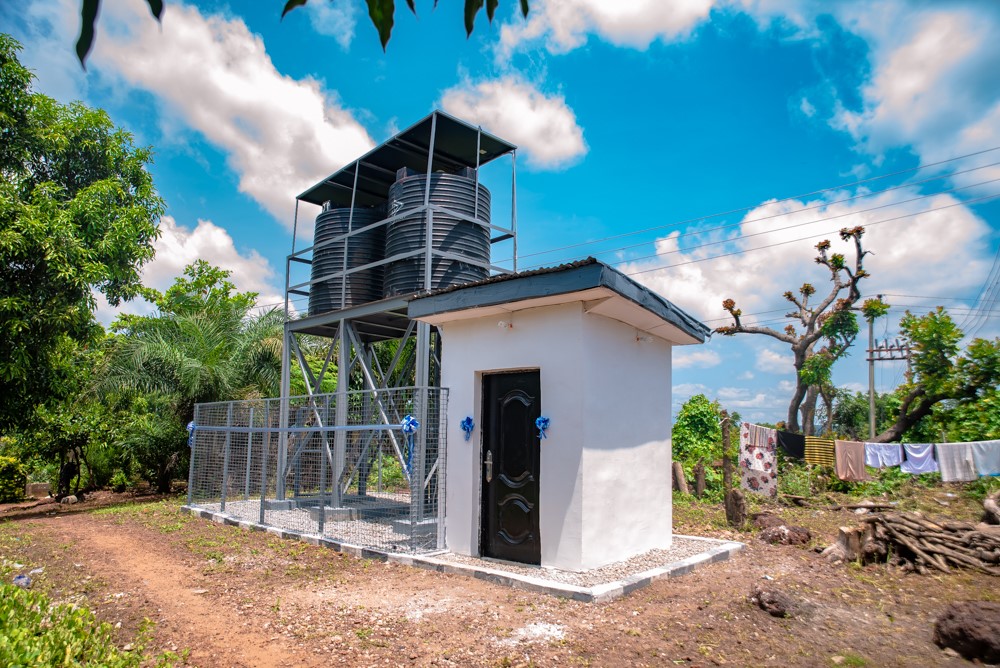
Can CSR Truly Transform Communities in Nigeria? A Critical Analysis
Corporate Social Responsibility (CSR) has gained global traction as a means for businesses to give back to society, balancing profit-making with ethical practices and societal development. In Nigeria, CSR has become increasingly important due to the country’s socio-economic challenges, including poverty, unemployment, environmental degradation, and inadequate social infrastructure. This article critically analyzes the potential of CSR to truly transform communities in Nigeria, examining both its successes and limitations.
Understanding CSR in the Nigerian Context
CSR refers to the voluntary actions companies take to enhance societal well-being, beyond what is required by law or regulation. In Nigeria, CSR activities often focus on areas such as education, healthcare, environmental sustainability, and community development. Multinational corporations, particularly in sectors like oil, gas, and telecommunications, have played a leading role in CSR initiatives, given their significant presence and impact on local communities.
However, Nigeria’s unique socio-political landscape presents both opportunities and challenges for CSR. Widespread poverty, corruption, ethnic tensions, and infrastructural deficits often mean that the stakes are high for businesses seeking to make a tangible difference. Moreover, CSR in Nigeria tends to be closely linked to the business interests of corporations, raising questions about the sincerity and long-term impact of these efforts.
The Impact of CSR in Nigerian Communities
1. Economic Empowerment and Job Creation
One of the key areas where CSR has made a significant impact is in economic empowerment. Many corporations, particularly in the oil-rich Niger Delta, have developed programs aimed at providing vocational training, entrepreneurship support, and job creation for local communities. Companies like Shell and Chevron have invested in agricultural projects, microfinance initiatives, and youth empowerment schemes to help address the high unemployment rates in the region.
While these efforts have yielded some positive results, they often fall short of addressing the root causes of poverty. Job creation through CSR tends to be limited in scale and sustainability. Furthermore, the economic benefits of these programs are often concentrated in communities close to company operations, leaving other areas underserved.
2. Education and Skills Development
Several corporations in Nigeria have made education a cornerstone of their CSR initiatives. For example, telecommunications giants like MTN and Airtel have invested in building schools, providing scholarships, and supporting digital literacy programs. These efforts help bridge the educational gap in a country where access to quality education remains uneven.
However, the impact of such CSR-driven education programs is often constrained by systemic issues within Nigeria’s education system, including poor infrastructure, outdated curricula, and a lack of qualified teachers. Without addressing these broader challenges, CSR efforts in education may yield short-term improvements but struggle to create long-term transformation.
3. Healthcare and Well-being
The healthcare sector in Nigeria has also benefitted from CSR initiatives, particularly in rural areas where medical facilities are lacking. Companies have partnered with non-governmental organizations (NGOs) to provide mobile clinics, sponsor health awareness campaigns, and donate medical supplies to underserved communities. For instance, oil companies in the Niger Delta have supported malaria prevention programs and maternal health initiatives.
While these programs are undoubtedly beneficial, they often operate as temporary solutions rather than addressing systemic healthcare issues. The sustainability of such initiatives is also questionable, as they often rely on the ongoing goodwill of corporations rather than fostering self-sufficient healthcare infrastructure.
4. Environmental Sustainability
Given Nigeria’s environmental challenges—particularly in the Niger Delta, where oil spills and environmental degradation are rampant—many CSR programs have focused on environmental sustainability. Companies have launched reforestation programs, clean-up campaigns, and sustainable agricultural practices to mitigate the ecological damage caused by their operations.
Despite these efforts, corporate environmental responsibility in Nigeria is often criticized as reactive rather than proactive. Many corporations are accused of contributing to environmental damage through their operations, and their CSR efforts are seen as superficial attempts to repair the harm they have caused. Moreover, the environmental initiatives tend to be localized, with minimal long-term planning or investment in sustainable practices.
Challenges Hindering CSR’s Transformative Potential
1. Lack of Accountability and Transparency
One of the major challenges facing CSR in Nigeria is the lack of accountability and transparency in the implementation of initiatives. There is often little oversight of how funds are allocated or how projects are executed. In some cases, CSR programs are used as a public relations tool, where companies engage in high-profile projects that do not necessarily address the most pressing needs of communities.
Furthermore, there is a lack of standardized metrics to evaluate the success and impact of CSR activities. This makes it difficult to determine whether these initiatives are truly benefiting communities or simply serving corporate interests.
2. CSR as a Band-Aid Solution
Many CSR efforts in Nigeria are criticized for addressing the symptoms of societal problems rather than their root causes. For example, while providing scholarships or building clinics is beneficial, these initiatives do not address the underlying issues of poor governance, corruption, or systemic inequality. As a result, CSR can often feel like a band-aid solution that temporarily alleviates issues without fostering long-term development or empowerment.
3. Misalignment with Community Needs
Another challenge is the misalignment between corporate CSR strategies and the actual needs of the communities they aim to serve. Many companies implement top-down CSR programs based on their own priorities or global trends, without sufficiently consulting local communities. This can lead to projects that are well-intentioned but irrelevant or unsustainable in the local context.
How Can CSR Truly Transform Communities?
For CSR to truly transform communities in Nigeria, it needs to evolve from charitable activities into more strategic, impactful initiatives. Here are some key ways to enhance the effectiveness of CSR:
- Inclusive Community Engagement: Companies should involve local communities in the planning and execution of CSR initiatives to ensure that projects align with their needs and priorities. Participatory approaches foster a sense of ownership and increase the likelihood of long-term success.
- Long-Term Sustainability: CSR efforts should focus on long-term development rather than short-term gains. For example, instead of simply donating funds or supplies, corporations could invest in capacity-building, infrastructure development, and sustainable practices that empower communities to become self-sufficient.
- Collaboration with Government and Civil Society: CSR can only go so far in addressing systemic issues without the involvement of other stakeholders. Companies should collaborate with government agencies, NGOs, and civil society organizations to address structural problems like poor governance, corruption, and inadequate infrastructure.
- Measurable Impact and Accountability: Corporations should adopt transparent processes for reporting and evaluating the impact of their CSR initiatives. By setting measurable goals and holding themselves accountable, companies can ensure that their efforts lead to tangible improvements in community well-being.
Conclusion
Corporate Social Responsibility has the potential to make a meaningful impact on Nigerian communities, but its current approach often falls short of delivering transformative change. For CSR to truly uplift communities, it must move beyond charity and embrace long-term, sustainable strategies that address the root causes of Nigeria’s socio-economic challenges. By fostering collaboration, ensuring transparency, and aligning with the actual needs of communities, CSR can become a powerful tool for driving lasting development and empowering marginalized populations in Nigeria.











